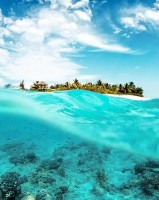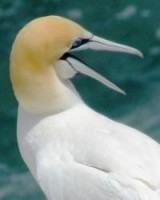Private guides and guided tours in Fiji
Private guides in Fiji
Private Guide in Nadi - Ben
(Member Since 2015) Languages: EnglishI am 37 years old and have been involved in the tourism industry for the past 15 years. I was employed as an Information Officer for the Fiji Visitors Bureau and then as a tour coordinator for Specialist Holidays Australia from 2004 - 2007. During this time, I was involved in looking after Sports Groups under Sportswell Tours and received First Aid training from St. John's Australia.
Private Guide in Suva - Fiji
(Member Since 2009) Excursions/tous in the following cities: Suva Languages: EnglishWe at Fiji bring you the best hotels in Fiji as well as hostels, bungalows and other accommodation. Trust us to offer you the best service and the most appropriate accommodation in Fiji. After all, not only...
Private Guide in Nadi - Joe
(Member Since 2015) Languages: Fijian, EnglishMy Personal Tours cater to all Ages and Ideas! I hold a Country Recognised Tour Guide Licence and I am also known to be extremely outgoing,vibrant and my customer satisfaction is guaranteed

Fiji
Language: English
Currency: Fijian dollar (FJD)
Calling Code: +679
CAPITAL CITY OF Fiji: Suva
LANGUAGE OF Fiji: English
CURRENCY OF Fiji: Fijian dollar (FJD)
COMMENTS ABOUT Fiji:
Fiji, officially the Republic of the Fiji Islands, is an island nation in the South Pacific Ocean east of Vanuatu.
Cities : Suva (capital), Labasa, Lautoka, Levuka, Nabouwalu, Nadi, Nausori, Rakiraki, Savusavu, Sigatoka
Electricity : 240V/50Hz (Australian plug)
Calling Code : +679
Time Zone : UTC +12 (no DST)
Fiji became independent in 1970, after nearly a century as a British colony. Democratic rule was interrupted by two military coups in 1987, caused by concern over a government perceived as dominated by the Indian community (descendants of contract laborers brought to the islands by the British in the 19th century). A 1990 constitution favored native Melanesian control of Fiji, but led to heavy Indian emigration; the population loss resulted in economic difficulties, but ensured that Melanesians became the majority. Amendments enacted in 1997 made the constitution more equitable. Free and peaceful elections in 1999 resulted in a government led by an Indo-Fijian, but a coup in May 2000 ushered in a prolonged period of political turmoil. Parliamentary elections held in August 2001 provided Fiji with a democratically elected government and gave a mandate to the government of Prime Minister Laisenia QARASE.
CLIMATE OF Fiji: Tropical marine; only slight seasonal temperature variation. Tropical cyclonic storms (The South Pacific version of Hurricanes) can occur from November to January.
RELIGION OF Fiji: Religion is one of the primary differences between indigenous Fijians and Indo-Fijians, with the former overwhelmingly Christian (97.2% at the 1996 census), and the latter mostly Hindu (70.7%) and Muslim (17.9%).
POPULATION OF Fiji: 880,874 (July 2004 est.)>>
ECONOMY OVERVIEW OF Fiji: Fiji, endowed with forest, mineral, and fish resources, is one of the most developed of the Pacific island economies, though still with a large subsistence sector. Sugar exports and a growing tourist industry - with 300,000 to 400,000 tourists annually - are the major sources of foreign exchange. Sugar processing makes up one-third of industrial activity. Long-term problems include low investment, uncertain land ownership rights, and the government's ability to manage its budget. Yet short-run economic prospects are good, provided tensions do not again erupt between indigenous Fijians and Indo-Fijians.



 French
French Spanish
Spanish Russian
Russian





